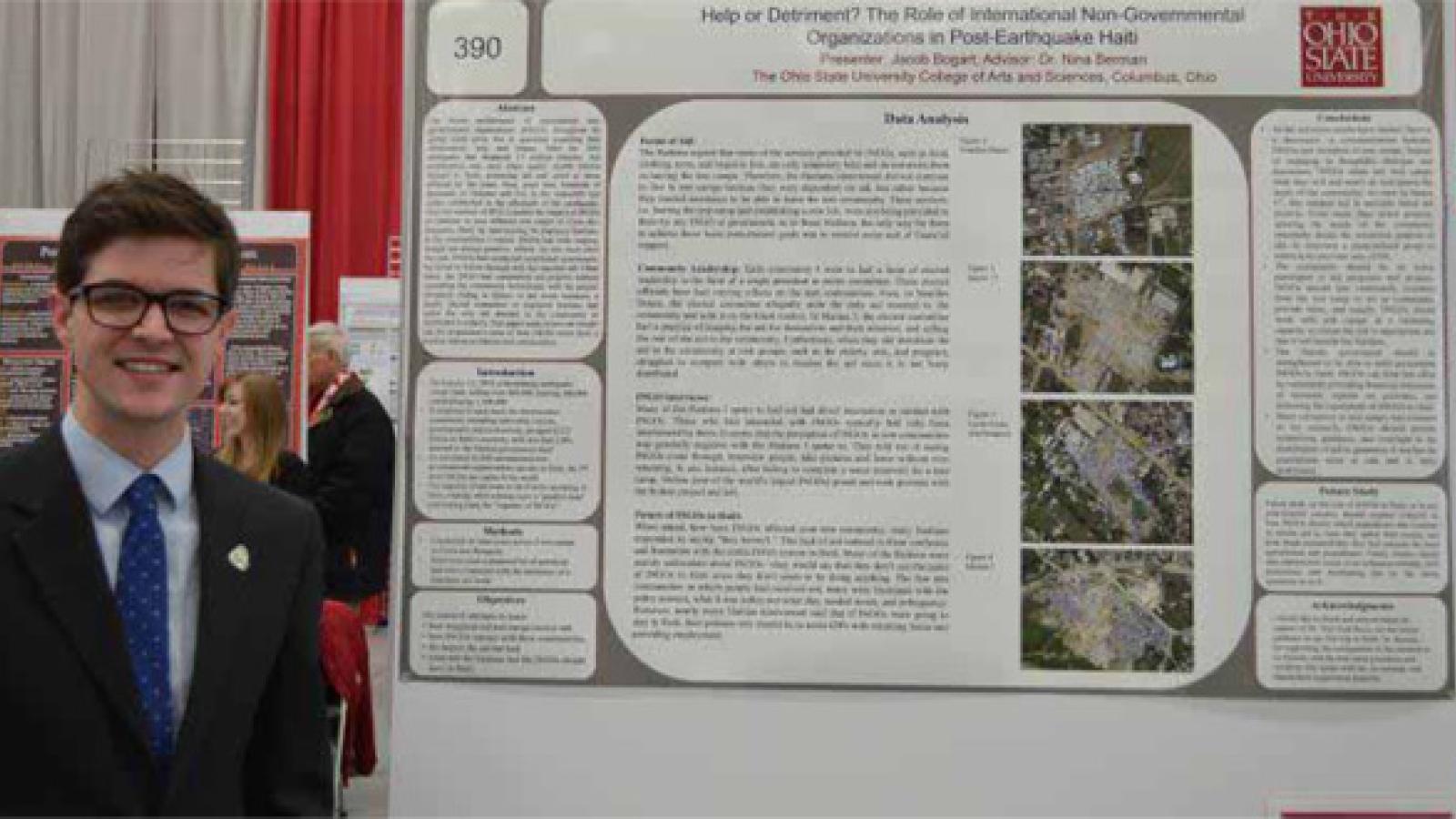Help or Detriment? The Role of International Non‐Governmental Organizations in Post‐Earthquake Haiti
Presenter: Jacob Bogart
Advisor: Prof. Nina Berman
The recent proliferation of international non-governmental organizations (INGOs) throughout the world, and in particular their ubiquity in the countries of the global south and areas affected by disasters and conflict, gives rise to questions regarding their effectiveness, role, and impact. Many academic studies and articles have been written about various aspects concerning INGOs that provide disaster relief and other forms of humanitarian aid. However, they are all too often focused disproportionately on the INGOs, as opposed to the population a ff ected fi rst by the disaster and then the work done by the INGOs. Over the summer of 2012, I studied the impact of INGOs on Haitians in five different tent camps in Croix-des-Bouquets, Haiti by interviewing displaced Haitians. After the 2010 earthquake that displaced 1.5 million Haitians, nearly 10,000 INGOs flocked to Haiti, promising aid and relief to those afflicted by the crisis. Now, years later, hundreds of thousands of Haitians still live in the makeshift tent camps established in the aftermath of the earthquake. In the communities I visited, INGOs had wide ranging, though not always positive, effects. As was most often the case, INGOs had conducted need-based as sessments, but failed to follow through with the requisite aid. Other times, the INGO had constructed aid projects without consulting the community beforehand, with the project ultimately ending in failure. In the worst instances, locally elected committees of displaced Haitians had stolen the only aid donated to the community or distributed it unfairly in the community. This paper seeks to elucidate the data gleaned from my interviews, while providing a historical context for understanding the role of INGOs in Haiti as well as providing insight into the population’s view of how INGOs could have a positive impact in Haitian tent communities.

